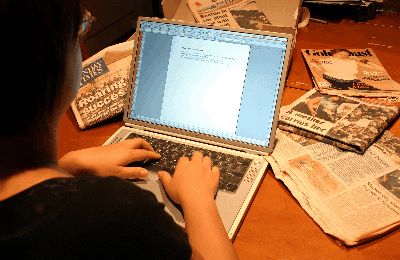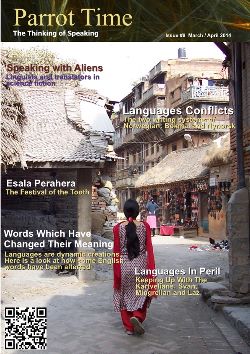 One of the big buzzwords in use today is globalization. Wikipedia defines it as "Globalization (or globalisation) is the process of international integration arising from the interchange of world views, products, ideas, and other aspects of culture. Put in simple terms, globalization refers to processes that increase world-wide exchanges of national and cultural resources." For polyglots, there is a particular interest in globalization, because that is where their skills really come into play. While the world is exchanging all these views, products, ideas and resources, it is going to need people that can translate between the many nations and people. While it can be said that English is the language of business, globalization goes beyond just business. On the internet, there are many new standards and technologies being designed and implemented to facilitate this increasing need. For example, a few years ago, it became possible to have domain names that were actually written in numerous scripts and not just the basic Latin alphabet. Websites are increasingly using UTF-8 for their character encoding, thus enabling pages to handle a much larger range of languages. Many sites now recognize the need to be available in multiple languages and allow visitors to select which to use. But it has to go beyond just being able to display text in other languages. The world is still divided by our measurement systems (imperial vs. metric), numerical notations (using periods and commas), date formats, currency conversions and a host of other differences. Some of these can be handled by a computer already, such as converting Euros to Yen, given the a database of currency exchange rates. Others take a little more work, like displaying the proper language in a date and timestamp, where the names of the days and months need to also change according to the language. In this issue, we are introducing a new column, called "GlobTech", short for "Globalization Technologies", in which we can examine some of the methods being used as we push toward a more multinational view of the world. Some topics will be related to translating and languages while others will focus on the basics of handling other technical requirements. We will try to look at why these things are needed as well as providing solutions as they currently exist. Whenever possible, we will be providing these answers in actual working code, often taken directly from the working components of Parleremo. The coding will be mostly in HTML, Javascript, CSS and PHP, depending on exactly what is needed. We look forward to hearing from our readers their own experiences with these technologies as we explore them! Erik Zidowecki |
| Letter From the Editor | |||
| Writer: | Erik Zidowecki | ||
| Images: | |||
| |||
All images are Copyright - CC BY-SA (Creative Commons Share Alike) by their respective owners, except for Petey, which is Public Domain (PD) or unless otherwise noted.
|
Searching for language resources? Find entertaining and educational books for learning a language at Scriveremo Publishing. Just click the link below to find learning books for more than 30 languages!
| |
comments powered by Disqus












































